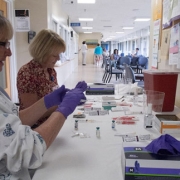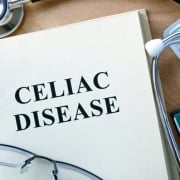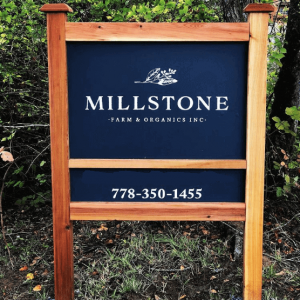Celiac Disease Lowers Hepatitis B Vaccine Response
 Research presented at the 33rd Annual Meeting of the European Society for Paediatric Infectious Diseases indicates that the protection offered by hepatitis B vaccine is impaired in children with celiac disease.
Research presented at the 33rd Annual Meeting of the European Society for Paediatric Infectious Diseases indicates that the protection offered by hepatitis B vaccine is impaired in children with celiac disease.
Maria José Pérez, MD, from Henares Hospital in Coslada, Spain revealed that there is an impaired immune response in children with celiac disease compared to control subjects vaccinated with hepatitis B vaccine. The vaccination occurred prior to the introduction of gluten, excluding the variable of anti-gliadin antibodies. Overall, nonresponse was higher in children with celiac disease than in control subjects. For children younger than 5 years, this difference was significant. “Gluten intake has no role in the genesis of suboptimal immunologic response to hepatitis B vaccine in patients with celiac disease,” Dr. Pérez reported.
In another study, vaccinations of 188 children with celiac disease and 204 healthy controls showed that the rate of responders to the vaccine was significantly lower in children with the human leukocyte antigen DR3 gene than in those without. Previous studies have identified these genes as the main marker for lack of response to the hepatitis B vaccine, so the team looked at the association in children with celiac disease expression of DQ2 and DR3 genes and noted an impaired immunologic response to hepatitis B vaccine,” Dr. Pérez reported.
“A single booster dose of hepatits B vaccine is not effective in achieving an adequate immune response,” especially in children with undetectable levels of antibody, the researchers report.
Dr. Murray, who is coauthor of a recent report on celiac disease (Clin Gastroenterol Hepatol. Published online July 19, 2014) confirms that the findings support previous research on the poor response to vaccine in children with celiac disease.
Read the entire review here.













